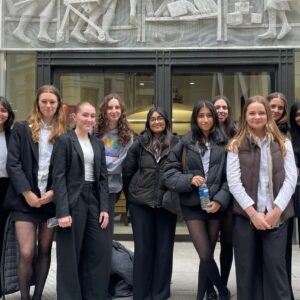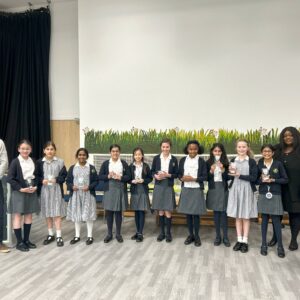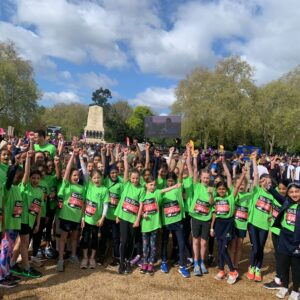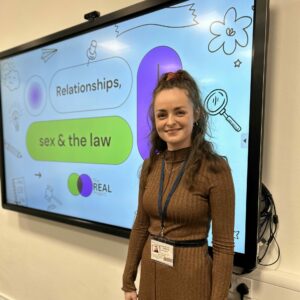News & Events
Alumnae spotlight: Anna Mahtani
February 2, 2024
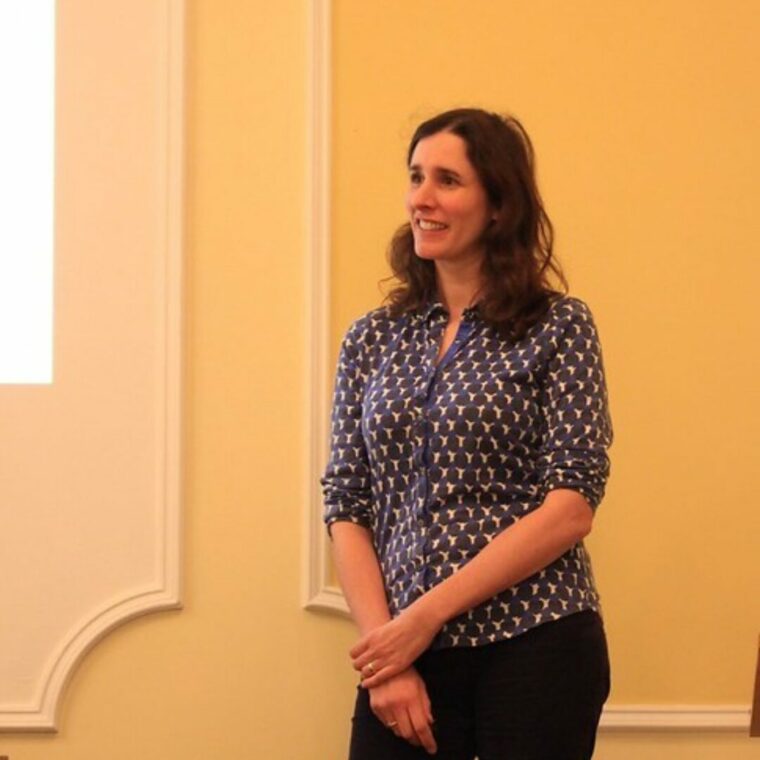
Anna Mahtani, Class of 1993
Professor in the Department of Philosophy, Logic and Scientific Method at the London School of Economics and Political Science (LSE).
Anna went to Leeds University as an undergraduate to study English Literature but discovered philosophy there and switched her degree. She went on to study at Oxford and Birkbeck before moving to Sheffield to write a PhD on the epistemic theory of vagueness. She then took up a British Academy post-doctoral position at Oxford before moving to the London School of Economics (LSE) in 2013. In 2015, she won a Philip Leverhulme Prize for researchers at an early stage of their careers whose work has had an international impact and whose future research career is exceptionally promising – to use for any research purpose. She has published on a wide range of topics, including vagueness, imaginative resistance, formal epistemology, and welfare economics.
Anna works on the philosophy of language at LSE, along with decision theory, formal epistemology and welfare economics, and the relationship between these areas.
Anna has just published The Objects of Credence. The credence (degrees of belief, subjective probabilities) framework is used by scientists and social scientists in almost all disciplines, including economics and political theory, and it underpins policy choices in healthcare, transport, education, and numerous other areas. The Objects of Credence brings to light a simple yet deep insight with profound theoretical and policy implications.
We caught up with Anna recently for a Q&A session:
What aspects of Croydon High School did you enjoy and find most rewarding?
I liked lots of the subjects and have some very happy memories of English and maths lessons in particular. I found the social side more difficult… I think I was a bit weird in the days when being weird was definitely not cool! But I found my feet more in the sixth form and really enjoyed spending time in the art block and acting in the school plays. I also made a good group of friends in the sixth form: we used to call ourselves the ‘untrendies’!
What did you aspire to whilst at school?
I had lots of aspirations, one of which was to become a teacher – and as it turns out, a big part of my current job does involve teaching, but at a university rather than a school. Another of my aspirations was to get onto an English Literature degree at Oxford, which didn’t happen, but it quickly became apparent that this was a gift: I went to Leeds instead, where I had the time of my life, discovered philosophy thanks to some inspirational lecturers, and was thoroughly supported in my future career.
How did Croydon High School empower you for your future?
I don’t think I did leave school feeling particularly ‘empowered’, but my confidence has grown gradually over the years. Things that have helped have included finding good role models, building up experience, and making good connections with peers.
What has been your proudest moment?
I’m proud of lots of things that I don’t really deserve the credit for, like my wonderful children. But as to being proud of myself, I feel like that when I have taken on a task that I’m a bit scared of – whether speaking in front of a large audience or committing to writing a book – and found that I can do it. Usually, the things that have seemed really daunting turn out to be totally doable if I just break it down into steps.
What are your hopes for the future?
At the LSE, our work is not supposed to be ‘ivory tower’ stuff but is supposed to connect up to the real world. We say that it should be ‘socially relevant’. My new project is very much on these lines, as it is about dementia and decision theory. There are all sorts of interesting questions here – about who should be making the decisions that affect a person with dementia and what should happen when a person’s life-long values do not seem to fit with their current preferences. I’m talking to lots of people affected by these issues, and hope that philosophy can offer some useful tools for people making these difficult decisions every day.
What would you say to your younger self?
I think I’d tell myself to stop worrying! Young people can feel under so much pressure to get everything right and not make any mistakes. But now I know that actually there are plenty of second chances and lots of different routes to where you want to get to. That’s what I’d say to my 15-year-old self, but I’m not sure if she would have listened!
Is there anything else you would like to tell us?
Yes! I have a great memory of Mr Vickery – maybe in form time? – giving us a puzzle to think about. This really caught my attention, and I had a big argument about it with a classmate (now Professor Charlotte Deane!). When I got to university, I found out that the puzzle was really about the opacity of certain linguistic contexts. And this topic is central to my recent work and a big theme in the book I’ve just written. So, thank you to Mr Vickery for that!
Mrs Karen Roe
Alumnae Relations Manager
More news
Sixth Form
Lower Sixth GDST Lead Programme 2024
Junior School
Year 5 Wearable Tech Challenge 2024
Junior School
